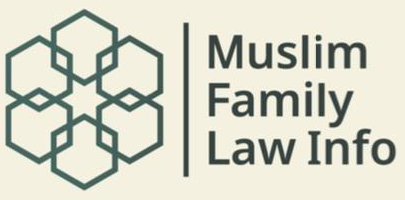Case Studies
We present a series of case studies based on the experiences of women who have contacted the MWNUK Helpline. These case studies offer real-life scenarios and highlight practical solutions to the complex issues faced by women, men and couples.
The names and scenarios have been altered to respect anonymity of individuals.
Abigail’s Case
Keywords – Clare’s Law, nikah register, domestic abuse
Before agreeing to a Nikah ceremony, Abigail exercised her right under Clare’s Law to request any known history of abuse linked to the man she was about to marry. No disclosures were returned, and he told her he had never been married before. Trusting this information, Abigail went ahead with the marriage.
Soon after the nikah, her husband became abusive. Eventually, she fled the marital home and reported the abuse to the police. It was only then that members of his family disclosed that he had, in fact, been married before and had also been abusive to his previous wife. However, because that abuse was never officially reported, there were no records available under Clare’s Law.
Abigail now believes that a national register of nikah marriages could help protect other women. Such a register would make prior marital histories more transparent, enabling prospective spouses to make fully informed decisions. While it may not capture unreported abuse, it could still provide a vital layer of accountability and reduce the likelihood of key information being withheld at the point of marriage.
Keywords – wali, convert, marriage
Natasha, a new Muslim, wanted to get married and was looking for a male Muslim to act as her wali (marriage guardian), as she felt it was important to follow Islamic principles in finding a spouse and for the nikah ceremony. She reached out to Imams at two local mosques for support but received no response.
New Muslims can be particularly vulnerable when it comes to marriage if they do not have a strong network of Muslim peers. With limited family or community support, they can become the targets of individuals who exploit their lack of knowledge of Islamic law. These individuals may present themselves as religiously knowledgeable but instead use that authority to mislead, manipulate, and coercively control their partners. This can amount to spiritual abuse, where religious teachings are twisted to justify isolation and abuse.
Due to this, it is important that those in positions of authority in Muslim communities respond when approached and asked to undertake a protective ‘guardian’ role.
Sue’s Case
Keywords – immigration, spousal visa, international marriages
Sue, who lives in the UK, had a nikah ceremony conducted online with a man she had never met in person. At the time of the marriage, he was living in another European country. The marriage was not legally registered or recognised in either of their countries of residence.
When Sue applied for a spousal visa to bring her husband to the UK, the Home Office did not accept the nikah as a valid marriage for immigration purposes. As it lacked legal recognition, it failed to meet the requirements for a spousal visa application.
This case highlights the complex legal and immigration challenges that can arise from Nikah-only marriages, particularly those conducted remotely, across borders, and without formal legal safeguards. It underscores the importance of understanding the legal status of religious-only marriages in different jurisdictions and the potential consequences for immigration, rights, and recognition.
Keywords – role of wali, guardian for marriage
As a young woman newly out of education, Karima had just started work when an older man began showing interest in her. He told her he loved her and wanted to marry her through a nikah contract as soon as possible. Karima felt unsure. She didn’t want to involve her parents or family members in the decision and began thinking about how to get married without their blessings.
It is likely that Karima sensed warning signs, possibly the reason she hesitated to discuss the proposal with her family. Over time, the man revealed troubling details: he had been married and divorced multiple times in the UK, still had a wife and children in his country of origin, and was struggling with a sex addiction.
In such situations, a wali (guardian) is traditionally expected to safeguard a young woman’s interests and can act as a protective factor, particularly where a woman may be vulnerable to exploitation. A wali plays an important role in helping verify a suitor’s background and advising on the overall compatibility of a potential spouse, taking into account factors such as personality, temperament, family circumstances, and upbringing.
However, the role of the wali can also become a barrier when misused or exercised on discriminatory grounds. Anisa’s story illustrates this.
Anisa, the UK-born daughter of migrants, wished to marry a man of her own choosing. Her father, acting as her wali, refused to consent to the Nikah – not because of the man’s character, values, or suitability, but solely because the man was from a country historically at war with her father’s homeland. Her father viewed him as ‘an enemy,’ a view rooted in historical enmity rather than religious principles.
This was not a valid reason to refuse a marriage under Islamic law. Still, Anisa waited more than two years, hoping that her mother or brother would be able to change her father’s mind. The delay caused her significant emotional distress, as she was forced to choose between waiting longer, giving up on a relationship she valued, or proceeding with the marriage without her father’s consent – potentially causing a rift in her family.
Importantly, under the Hanafi school of thought, Imam Abu Hanifah maintained that it is not obligatory for a fully competent adult woman to have a wali to contract her marriage. Based on this view, a woman, whether previously married or not, has the right to contract her own marriage independently.

















